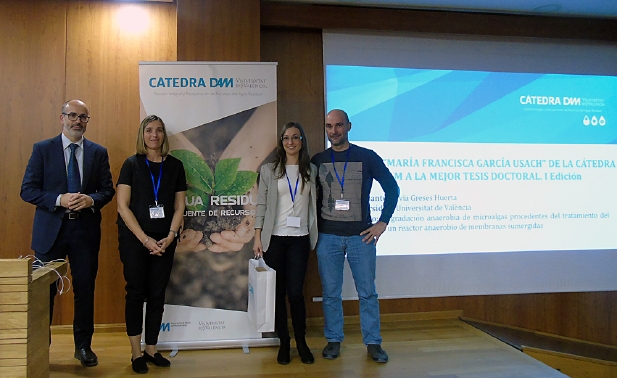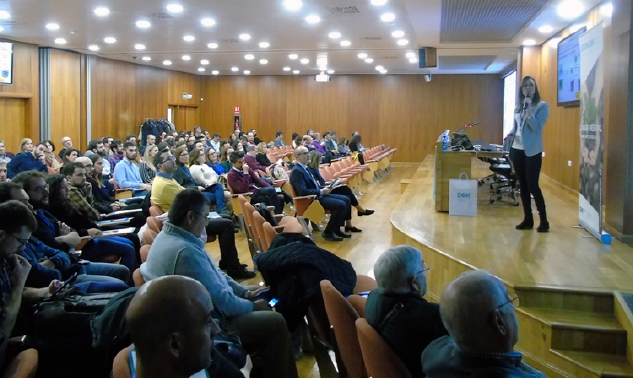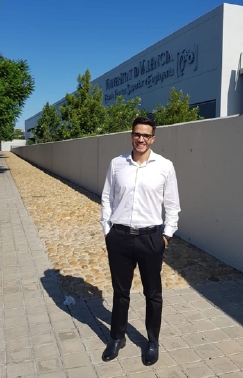
In the Doctoral Thesis modality, the award went to Silvia Greses Huerta, whose research has been directed by Aurora Seco and Daniel Aguado.
For his part, Miguel Alejandro Pérez Tortolo has won the prize in the category of Master Thesis.
The Committee of the II Edition of the DAM Chair Prizes for the best Academic Work in the “field of integral management and recovery of wastewater resources”, has agreed to award the “María Francisca García Usach” award for best thesis PhD to Silvia Greses, for her work: "Anaerobic degradation of microalgae from the effluent treatment of an anaerobic reactor of submerged membranes".
The study, which has been led by researchers from the CALAGUA group, Aurora Seco and Daniel Aguado, analyzes the anaerobic degradation of algal biomass produced in the effluent of an anaerobic treatment of urban wastewater, in order to maximize its energy recovery in biogas form. To this end, two strategies were carried out based on increasing the biodegradability of the microalgae through enzymatic pretreatment and enhancing the hydrolytic activity of anaerobic microorganisms through membrane processes.
"Research shows that the production of biogas from anaerobic digestion of microalgae can be maximized without the need to apply expensive pretreatments, resulting in one of the greatest biodegradabilities of algal biomass reported so far," says Dr. Greses Huerta.
For its part, the Committee has awarded the prize in the category of Master Thesis to the student Miguel Alejandro Pérez Tortolo, for his project entitled “Study of the filtration process in an anaerobic membrane bioreactor (AnMBR) for the co-digestion of algae and primary sludge”, and which has been directed by the researchers of the CALAGUA group, Ángel Robles and Pau Sanchis.
The research analyzes, on a laboratory scale, the filtration process of the sludge generated during the co-digestion of algae and primary sludge in an AnMBR, operating in a mesophilic temperature range and stationary regime. At the same time, the most favourable operational conditions of the system to carry out this process are established.
“The results obtained showed that, under the conditions analysed, the total solids content proved to be the parameter with the greatest influence on the filtration process. As for the filterability tests, it was found that for sludges with viscous properties and very low filtration capacity, such as the one studied, the TTF test gives better indications of its filterability than the rest of the methodologies used”, explains Miguel Alejandro Perez.
Images:







